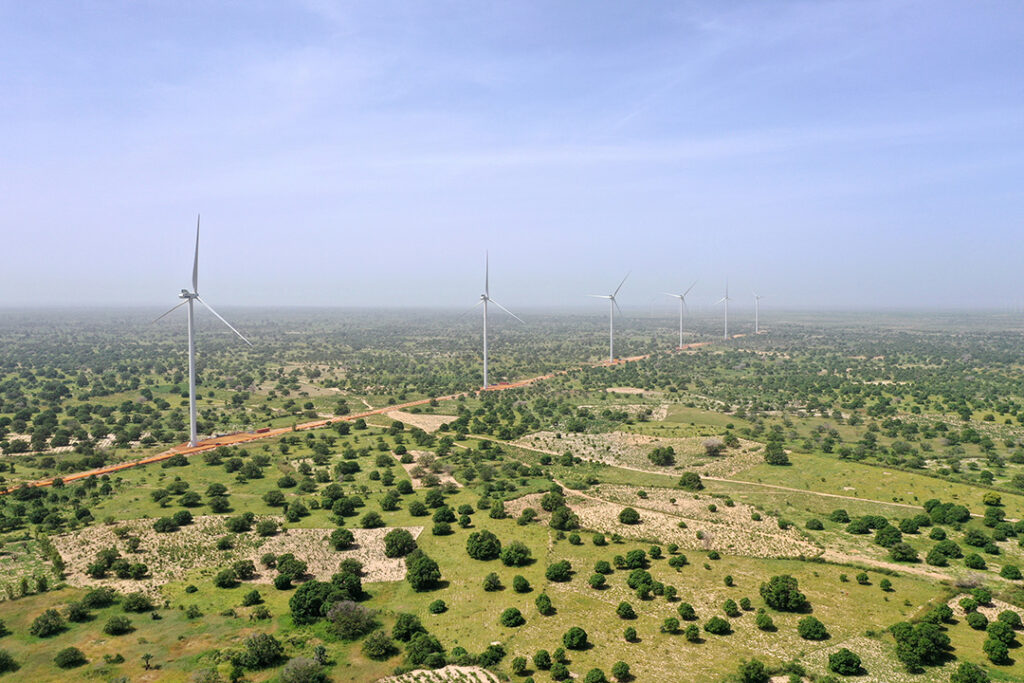Africa is at a pivotal moment to shape its energy future and economic prospects for years to come. It grapples with a paradox: a continent rich in energy resources yet plagued by pervasive energy poverty. More than 600 million people, equivalent to 10 times the population of South Africa, lack access to reliable, modern energy sources. Additionally, nearly 970 million people, three times the size of the United States population, rely on traditional biomass for cooking, lacking access to a clean alternative.
These sobering realities confront Africa as the world hurtles towards the energy transition. The continent’s energy deficit places it in a precarious position, particularly as urbanisation rates rise, and population projections estimate 2.4 billion people by 2050 and a staggering 4.2 billion by 2100. While debates about the decarbonisation of Africa’s energy system and the role of fossil fuels are crucial, focusing solely on these aspects oversimplifies the complex challenges and opportunities inherent in Africa’s energy landscape.
This article sheds light on the overlooked complexities surrounding Africa’s energy deficit and energy transition. It presents potential solutions as the world gears up for the 28th Climate Change Conference of the Parties (COP28) in the United Arab Emirates (UAE) later this year. By understanding these dynamics and embracing innovative approaches, Africa can chart a course towards a more inclusive, sustainable, and prosperous energy future for its people.
“There is no such thing as a low-energy, rich country”. This statement, however, has now become a rallying cry for those warning of the potential risks associated with the energy transition for developing economies. Africa has the lowest energy consumption, in addition to the lowest levels of economic development, globally. The continent has a significant energy deficit that the energy transition could make worse. At the same time, this statement illuminates the direction and priorities for African countries. For Africa to grow rich and develop, it must consume more energy.
For countries to successfully develop (become rich), they must have secure access to energy resources and the ability to transform them into usable energy—electricity or the refined petroleum products we use daily.
The politics of the energy transition and energy policy more broadly hinge on the concept of the energy trilemma. The energy trilemma includes three factors: energy security, energy equity, and environmental sustainability. The interplay and prioritisation between them are determinants of a country’s future energy policy. A country’s access to secure, reliable, and affordable energy resources is vital for economic development. Additionally, these energy resources must be able to reach consumers in a usable manner.
As mentioned earlier, despite Africa’s abundant energy resources, the continent faces the paradox of being resource-rich yet energy-poor. The energy value chain encompasses the processes and activities from extraction leading to energy consumption. This concept is crucial to understanding Africa’s energy deficit. Primary energy sources, such as oil, coal, biomass, and gas, must be transformed before consumers can use them. It is essential to differentiate between energy and electricity since electricity is an energy carrier alongside liquified natural gas (LNG), petrol and diesel, and hydrogen.
Insufficient investment in generation, distribution, and transmission capacity, inadequate infrastructure maintenance, and weak regulatory regimes contribute to Africa’s energy deficit.
Generation infrastructure converts energy sources into electricity; transmission infrastructure enables long-distance electricity transportation; and distribution infrastructure delivers electricity to homes and businesses.
An effective electricity regulator is essential for managing markets, issuing licences, determining tariffs, ensuring grid access, and safeguarding consumer rights. Without significant improvements in transmission, distribution infrastructure, and regulatory frameworks, expanding energy access will remain a challenge, in Nigeria, for instance, with an installed capacity to produce 16,384MW.
Addressing these underlying issues is vital for Africa to bridge its energy deficit, unlock the potential of its primary energy resources, and promote sustainable development. Increasing fossil fuel exploration or deploying renewable energy sources will be insufficient if issues surrounding generation, transmission, distribution, maintenance, and regulatory frameworks are not effectively addressed.
Regulatory reforms and effective power market systems are crucial for addressing Africa’s energy deficit and achieving universal access. Without proper regulatory systems, increased power generation from coal, nuclear, solar, or wind sources cannot reach consumers, rendering the efforts ineffective.
In many African countries, a single state utility is responsible for power generation, transmission, and distribution, while national energy regulators set unsustainable tariffs. However, conflicts between regulators and utilities, corruption, and mismanagement have contributed to energy crises in some countries, such as South Africa. These failures highlight the need for reforms within power markets on the continent.
Electricity regulators and power markets play a vital role in ensuring affordable electricity tariffs that promote consumption and support developmental outcomes. Tariffs should be attractive to consumers while attracting investment from independent power producers (IPPs). With future population growth and increased urbanisation, the role of IPPs and the evolution of tariff structures become even more critical. Additionally, addressing the risk of non-payment for electricity services is vital for ensuring investment in the necessary infrastructure.
Existing electricity regulatory systems in Africa must adapt to the changes brought about by the energy transition. Tariff structures must evolve as renewable energy resources expand and baseload power generation shifts. The unbundling of electricity utilities and the involvement of IPPs will shape Africa’s power markets.
However, effective regulatory systems, incentives, and interconnected grid processes are necessary to maximise the potential of decentralised solar electricity grids. The development of regulatory frameworks that can adapt to the changing energy landscape and market operations is required to systematically address Africa’s energy challenges.
In closing, Africa stands at a critical crossroads on its energy journey. Africa must navigate the complex interplay of energy security, equity, and sustainability as the world shifts towards a new energy era.
To unlock Africa’s potential, we must bridge the energy deficit that hinders economic growth and human development. This means investing in robust infrastructure development for power generation, distribution, and transmission while implementing effective regulatory systems. Many find energy resources out of reach without these foundations, rendering efforts futile.
Regulatory reforms and vibrant power markets are essential. We can better shape Africa’s energy landscape by ensuring fair tariffs to attract investment from IPPs. Let’s adapt regulatory frameworks to embrace renewable energy and accommodate the changing needs of a growing and increasingly urban population.
As we look towards COP28, collaboration is vital. Together, we can support Africa’s energy transition, address maintenance challenges, and promote sustainable practices. By seizing this opportunity, Africa can break free from energy poverty, utilise its vast resources, and build a brighter, greener future for all.

Vincent Obisie-Orlu is a Natural Resource Governance Researcher at Good Governance Africa. He holds a BA in International Relations and Political Studies from the University of the Witwatersrand. His work focuses on natural resource governance of critical minerals, Environmental Social and Governance (ESG) issues, sustainable finance, and energy policy in light of the energy transition.



